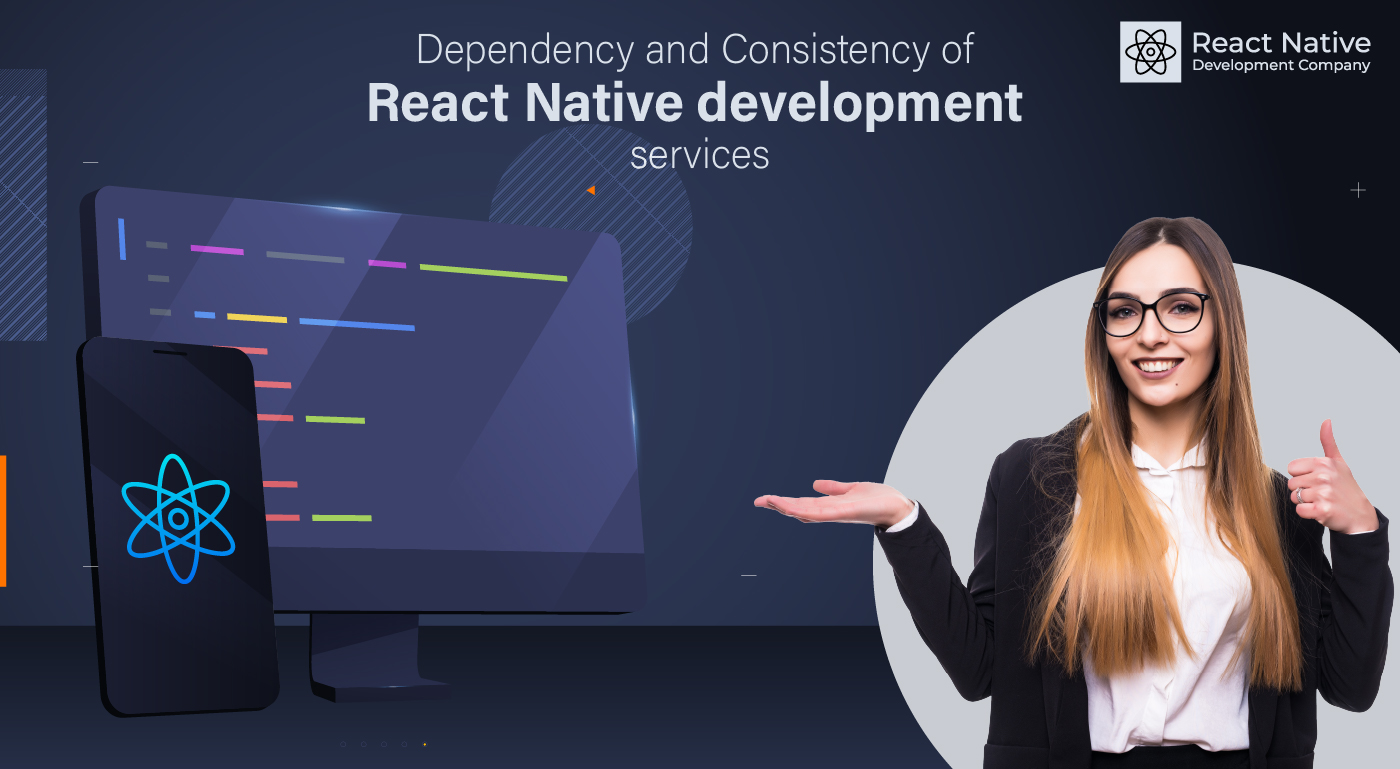
Dependency and consistency of React Native development services
React Native is the latest framework that was invented by Facebook in 2015. It is an open-source application that works on JavaScript Thread. React Native is invented for mobile applications to make them run fast and retrieve all the data quickly. React Native can be used on all operating systems IOS, macOS, Android, Android tv, Windows, and the Web. It is used by many companies that provide React Native development services to clients. Even, Fortune 500 companies like Facebook, Bloomberg, Airbnb, Skype, Pinterest, and Instagram have started using the React Native framework to improve the performance of their mobile applications.
Earlier, React’s framework was used for developing mobile applications. React’s framework was built on JavaScript that supported the Document Object Model. Mobile applications built on React framework were unable to recover data instantly. It also hindered the speed of mobile applications. Facebook wanted to rectify this issue, so they thought to use React Native framework. Facebook was already using this framework to manage its advertisements. They knew the capabilities of the React Native framework. The base of the framework used is React’s framework with few changes in additional features. This helps developers to develop applications with more facilities.
The specialty of React Native Platform
The specialty of React Native platform is that it is cross-platform. This means that it can be used across any platform with the same programming language. With the same base of programming language, an application can be launched on all operating systems. Nowadays, popular operating systems are IOS and Android. Every company wants their application to be available on both operating systems because the number of users is more for Apple and Android. It helps the developer also as the initial step is common for any operating system. They have to work on the next step, Coding as separately. It is different for Apple and Andriod. Apple applications work on Swift code language only. An Android application works on Java and Kotlin.
Also, React Native is not in the favour of Document Object Model. Even though, both React and React Native work virtually the same as a framework. With DOM, React Native does not support the structure. DOM’s main work is to shape the hierarchy as per the structure in the form of a tree. This hierarchy of work is in an HTML document that needs to be transformed into a tree with all its elements.
Any React Native development company does not have to take permission from Facebook, which is its originator. Any development company has access to build an application and provide React Native development services to any company in the world. Since it is the latest technology to build any application, every company wants to use it as everyone wants to stay updated. Developers also suggest and present the idea to their clients for any new applications. Developers as a community are very strong. They are always ready to help each other and provide solutions.
Profits of using React Native Platform
Consistency — It is a consistent platform. The performance is much better than React platform. Earlier, when Facebook was using React platform for its mobile applications then it faced many issues regarding its performance. The outcome was very poor. So, they decided to do something about this as users were not happy about this. Facebook being the number one software company that has users from all parts of the world had to solve this issue. This is how React Native was launched worldwide as a cross-platform for mobile applications. It improved the performance and users were happy to use it. The speed, data backup, and security issues are fixed which made the application safe to use.
Dependency — With improved performance and security, users are more dependent on using the applications based on React Native platform. It has satisfied users and given them the confidence to React Native development services company to build more applications. React Native platform gives better solutions to clients. React Native is a dependable platform that guarantees the productivity one expects from any application.
Easy access — It is an open-source platform. It is used by all the React Native development services companies to develop applications with the best support. An open-source platform means that all the access to data of the platform is unrestricted and easily accessible.
Less time-consuming — As told earlier, React Native platform can be run on both platforms with a similar programming language. Developers do not have to develop different platforms for the same application to run on different operating systems. It saves a lot of time than other platforms. On other platforms, every step from start to end has to be created separately which consumes a lot of time for any developer.
Developers Relationship – Developers maintain a strong relationship with each other. They share their experience, opinions, and contribution to this platform. All the data of configuration are shared on an open-source platform. This makes work easy for new or less experienced developers as this work requires a lot of knowledge to build an application to get the expected result. Senior developers can guide their counterparts by sharing their data on this platform. Sharing of data also prevents plagiarism. Easily any developer can check the coding used for similar or different applications. This saves the developer from any kind of problem that occurs in the future.
Read also: 6 Tools for Debugging React Native
Popular programming language – React Native development services company builds applications on the programming language, JavaScript Thread. It is quite popular among all the developers and development companies. This language is popular because it’s a simplified language.
Amending Codes – React Native platforms’ codes can be easily amended as per the requirement of the application. Also, the codes are reusable for any other application in the future. Developers can reuse the codes for applications that are similar kinds of applications.
GPU – Graphics processing unit, GPU is the latest processing unit that is used by developers nowadays. Earlier, they used to build an application on a Central processing unit, CPU but now it is also upgraded to GPU. All the website and mobile application owners want lots of graphics on their applications. They want it to have all the graphic tools and graphic designs as well.
Best monetary option – It is the best option as it saves clients money also. The client does not have to pay for two different platforms and applications. Applications for IOS and Android can use the same framework. This reduces clients’ expenses to build any application and also delivery is quicker than before.
Add-ons – React Native has all the capabilities of React framework for better performance. In addition to this, React Native has more add-ons than React framework to build a better web or mobile application. Its speed is faster than ever and offers more features that can be added to the application. This also provides more design tools. The design of the application is an important aspect as it attracts users to download the application. In React native framework, one has many options for design and can be creative.
Proof of dependency and consistency of React Native development company
React Native platforms have weaknesses also. React Native Development services have to add on plugins from different platforms as React Native also has limited options for add-ons.
Open access to all the developers and development company increases security issues as all the data are shared on a public platform. Few companies do not document their configuration properly. Testing is also not performed as per the guidelines. This can be a threat to the users as it makes hacking easy.
The most concerning weakness are that only experienced developers can use React Native platform comfortably. New or less experience will not be able to learn it quickly. This can shake developers’ confidence and clients’ as well.
After all, these weaknesses, React Native platform can be dependent upon the React native development company and clients. As its performance is consistent and developers are working on its weakness. They are trying to remove all the apprehensions and update it with all the desired features. This will make React Native platform a more used platform by companies and increase its popularity.
One must not lose belief in technology and people working to make it better for the convenience of our personal and professional life.
